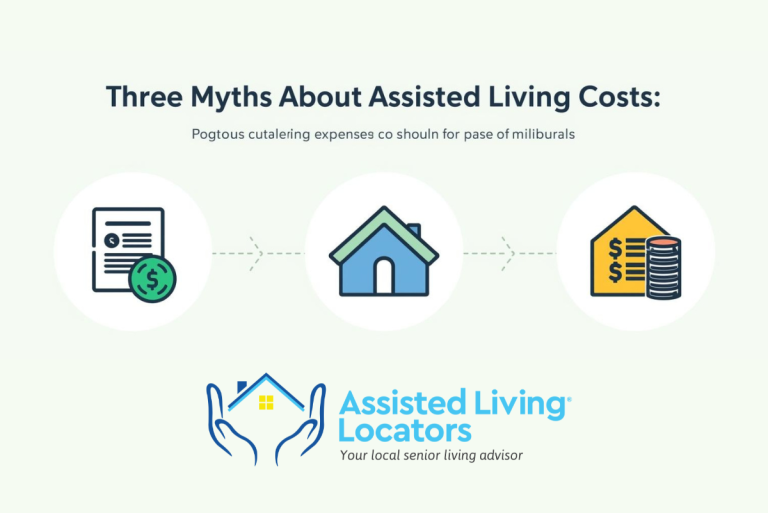Ensuring the well-being of seniors often requires careful management of their nutrition, with calcium being particularly critical. Calcium supports bone health, muscle function, and nerve signaling, but achieving adequate intake can be challenging due to factors such as diminished appetites, altered taste preferences, dental problems, and medications that affect nutrient absorption. Recognizing and addressing these challenges is essential for helping seniors maintain necessary calcium levels to prevent osteoporosis and promote overall health.
Understanding Calcium Needs in Seniors
Dedicated to the well-being of your elderly loved ones, it's vital to understand their specific nutritional needs, particularly regarding calcium. This essential mineral plays a crucial role in maintaining bone health, muscle function, and nerve signaling. Understanding the nuances of these needs can significantly impact their overall health and quality of life.
Daily Calcium Requirements
For seniors, the daily calcium requirements can vary significantly with age and gender. Generally, adults over 50 years old are recommended to intake around 1,200 mg of calcium daily according to the National Institutes of Health Office of Dietary Supplements (ODS). This recommendation accounts for the increased need to counteract the natural bone density loss and reduced intestinal calcium absorption that occurs with age.
Changes in Calcium Needs with Age
As loved ones age, their bodies undergo several changes that affect how nutrients are processed, and calcium is no exception. The aging process often leads to a decreased efficiency in calcium absorption—a direct consequence of reduced stomach acid production, which is essential for calcium absorption from dietary sources. Moreover, the risk of conditions such as osteoporosis increases with age, making calcium even more crucial to help maintain bone mass and prevent fractures.
Calcium-Rich Foods Suitable for Seniors
Ensuring your elderly loved ones receive adequate nutrition is a key component of caregiving, especially when it comes to maintaining strong bones and overall health. Calcium is crucial for seniors, but getting enough from their diet can be challenging due to dietary restrictions or changes in taste and digestion. Here’s a guide to incorporating calcium-rich foods into their diets, offering both variety and nutritional benefits.
Dairy Products
Dairy products like milk, yogurt, and cheese are traditional sources of calcium. For seniors, opting for low-fat versions can be beneficial as they provide the necessary nutrients without the extra saturated fat, promoting better heart health. For those who are lactose intolerant, lactose-free dairy options or choosing smaller portions can help enjoy the benefits of dairy without discomfort.
Fortified Plant Milks
Not all seniors can tolerate dairy, and for them, plant milks can be an excellent alternative. Almond milk, soy milk, and rice milk are popular options. It’s important to choose products that are fortified with calcium to ensure they are getting a comparable amount to dairy milk. These fortified plant milks also often provide vitamin D, which is essential for calcium absorption.
Leafy Greens
Leafy green vegetables like spinach, kale, and collard greens are excellent non-dairy sources of calcium. These can be incorporated into a senior’s diet through salads, smoothies, or as a cooked side dish. When preparing these, it’s useful to pair them with a light source of fat, like olive oil, to enhance the absorption of nutrients.
Almonds and Other Nuts
Almonds and other nuts are not only good sources of calcium but also provide healthy fats and protein which are important for overall health. However, for seniors with chewing difficulties or dental issues, nuts can be incorporated in other forms such as almond butter or finely ground in dishes to ensure they can still benefit from the nutritional value without the risk of choking.
Overcoming Dietary Challenges
Caring for elderly loved ones often involves addressing a range of dietary challenges that can affect their nutrition and overall health. Decreased appetite, dental problems, and digestive issues are common hurdles that need thoughtful solutions, particularly when it comes to ensuring adequate calcium intake.
- Enhancing Flavor and Presentation: Many seniors experience a decrease in appetite and changes in taste preferences. To make calcium-rich foods more appealing, focus on enhancing the flavor and visual appeal of dishes. Use herbs and spices to improve the taste without adding sodium. Present meals in an attractive way, using colorful vegetables and easy-to-eat cuts to entice their palate.
- Texture Modifications: Dental problems can make it difficult for seniors to consume certain textures, particularly hard or crunchy foods. To accommodate this, modify the texture of calcium-rich foods. For example, serve cheese in a softer, melted form or offer yogurt instead of hard cheeses. Vegetables like broccoli or kale can be steamed until they are softer and easier to chew.
- Small, Frequent Meals: Seniors with decreased appetites may find it easier to eat small, frequent meals rather than three large ones. Incorporate calcium-rich snacks throughout the day, such as a small glass of fortified plant milk, a slice of cheese, or yogurt with fruit. This approach can make it easier for them to consume adequate nutrients without feeling overwhelmed by large portions.
- Digestive Comfort: Digestive issues can deter seniors from eating certain foods. To counteract this, choose calcium-rich foods that are known to be gentler on the stomach. For instance, rather than raw leafy greens, which can cause bloating, opt for lightly cooked greens which are easier to digest. Additionally, when using dairy products, consider lactose-free options to avoid gastrointestinal discomfort.
Supplements and Their Role
When diet alone isn't sufficient to meet calcium needs, supplements can help prevent deficiencies and support bone health. However, it's important to approach supplementation carefully, as excessive intake can lead to health complications such as kidney stones or cardiovascular issues.
Choosing the Right Supplement
- Consultation with Healthcare Providers: Before starting any supplement, it's essential to consult with a healthcare provider. They can offer guidance based on a senior's overall health profile, medications, and existing dietary intake. This step ensures that the supplement will not interfere with other medications or health conditions.
- Type of Calcium in Supplements: There are different types of calcium compounds used in supplements, such as calcium carbonate and calcium citrate. Calcium carbonate provides a higher amount of calcium and is cost-effective but should be taken with meals for optimal absorption. Calcium citrate, although more expensive, is absorbed well on an empty stomach and is a preferable choice for individuals with digestive issues.
- Dosage and Absorption: The senior body absorbs calcium best in doses of 500 mg or less. If a higher daily dose is needed, it should be taken in smaller amounts throughout the day. This approach maximizes absorption and reduces the risk of adverse effects.
- Potential Warnings and Interactions: It's crucial to be aware of potential interactions between calcium supplements and other medications, such as bisphosphonates used to treat osteoporosis or antibiotics. Supplements should also be checked for additional ingredients like vitamin D, which can enhance calcium absorption but might require monitoring for safety.
In conclusion, ensuring adequate calcium intake is essential for the health and well-being of your elderly loved ones. We've discussed incorporating calcium-rich foods like dairy, fortified plant milks, leafy greens, and nuts, and highlighted the importance of supplements when dietary intake is insufficient. Creativity in meal preparation can not only make meals nutritious but also enjoyable, helping to overcome challenges such as decreased appetite or dental issues.





